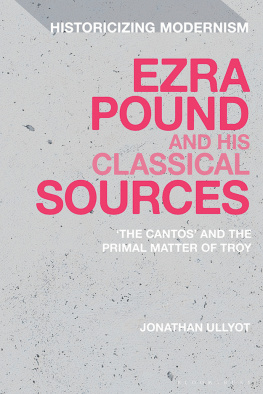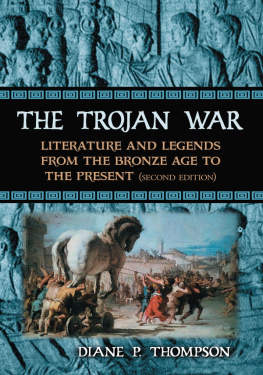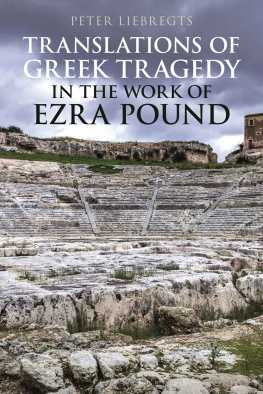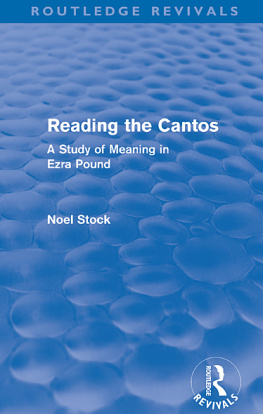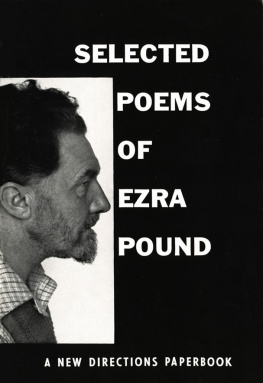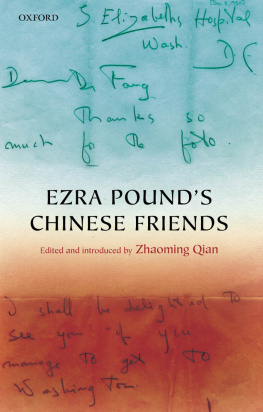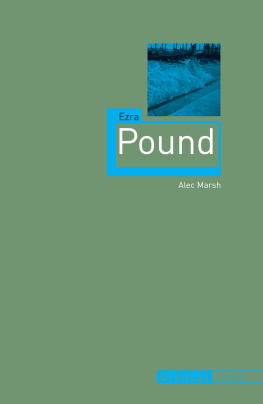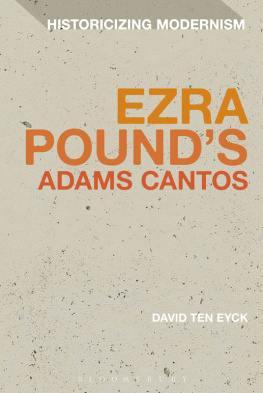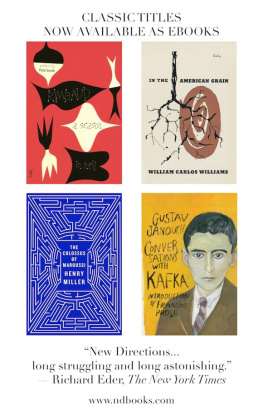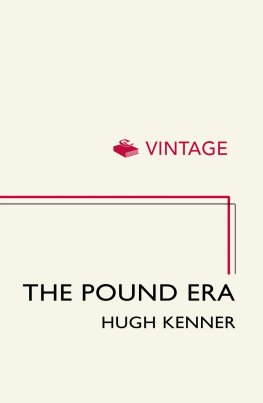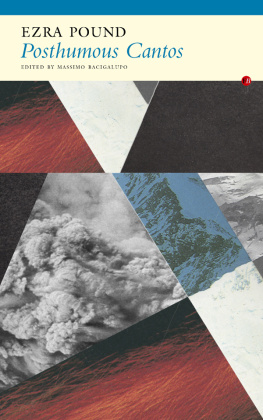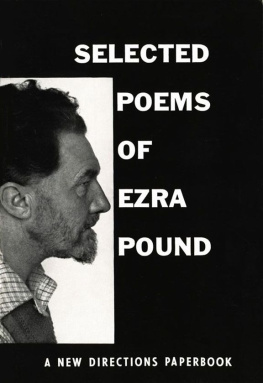Ezra Pound and His Classical Sources
Historicizing Modernism
Series Editors
Matthew Feldman, Professorial Fellow, Norwegian Study Centre, University of York, UK; and Erik Tonning, Professor of British Literature and Culture, University of Bergen, Norway Assistant Editor: David Tucker, Associate Lecturer, Goldsmiths College, University of London, UK
Editorial Board
Professor Chris Ackerley, Department of English, University of Otago, New Zealand; Professor Ron Bush, St. Johns College, University of Oxford, UK; Dr Finn Fordham, Department of English, Royal Holloway, UK; Professor Steven Matthews, Department of English, University of Reading, UK; Dr Mark Nixon, Department of English, University of Reading, UK; Dr Julie Taylor, Northumbria University; Professor Shane Weller, Reader in Comparative Literature, University of Kent, UK; and Professor Janet Wilson, University of Northampton, UK.
Historicizing Modernism challenges traditional literary interpretations by taking an empirical approach to modernist writing: a direct response to new documentary sources made available over the last decade.
Informed by archival research, and working beyond the usual European/ American avant-garde 190045 parameters, this series reassesses established readings of modernist writers by developing fresh views of intellectual contexts and working methods.
Series Titles
Arun Kolatkar and Literary Modernism in India, Laetitia Zecchini
British Literature and Classical Music, David Deutsch
Broadcasting in the Modernist Era, Matthew Feldman, Henry Mead and Erik Tonning
Charles Henri Ford, Alexander Howard
Chicago and the Making of American Modernism, Michelle E. Moore
Christian Modernism in an Age of Totalitarianism, Jonas Kurlberg
Ezra Pounds Adams Cantos, David Ten Eyck
Ezra Pound and His Classical Sources, Jonathan Ullyot
Ezra Pounds Eriugena, Mark Byron
Ezra Pounds Washington Cantos and the Struggle for Light, Alec Marsh
Great War Modernisms and The New Age Magazine, Paul Jackson
Historical Modernisms, Jean-Michel Rabat and Angeliki Spiropoulou
Historicizing Modernists, Edited by Matthew Feldman, Anna Svendsen and Erik Tonning
James Joyce and Absolute Music, Michelle Witen
James Joyce and Catholicism, Chrissie van Mierlo
James Joyce and Photography, Georgina Binnie-Wright
Jean Rhyss Modernist Bearings and Experimental Aesthetics, Sue Thomas
John Kasper and Ezra Pound, Alec Marsh
Judith Wright and Emily Carr, Anne Collett and Dorothy Jones
Katherine Mansfield and Literary Modernism, Edited by Janet Wilson, Gerri Kimber and Susan Reid
Katherine Mansfield: New Directions, Edited by Aime Gasston, Gerri Kimber and Janet Wilson
Late Modernism and the English Intelligencer, Alex Latter
The Life and Work of Thomas MacGreevy, Susan Schreibman
Literary Impressionism, Rebecca Bowler
The Many Drafts of D. H. Lawrence, Elliott Morsia
Modern Manuscripts, Dirk Van Hulle
Modernist Authorship and Transatlantic Periodical Culture, Amanda Sigler
Modernist Lives, Claire Battershill
Modernist Wastes, Caroline Knighton
The Politics of 1930s British Literature, Natasha Periyan
Reading Mina Loys Autobiographies, Sandeep Parmar
Reframing Yeats, Charles Ivan Armstrong
Samuel Beckett and Arnold Geulincx, David Tucker
Samuel Beckett and the Bible, Iain Bailey
Samuel Beckett and Cinema, Anthony Paraskeva
Samuel Beckett in Confinement, James Little
Samuel Beckett and Experimental Psychology, Joshua Powell
Samuel Becketts German Diaries 19361937, Mark Nixon
Samuel Becketts More Pricks than Kicks, John Pilling
Samuel Beckett and the Second World War, William Davies
T. E. Hulme and the Ideological Politics of Early Modernism, Henry Mead
Virginia Woolfs Late Cultural Criticism, Alice Wood
Ezra Pound and His Classical Sources
The Cantos and the Primal Matter of Troy
Jonathan Ullyot

Contents
This book grew out of an article I wrote for Unattended Moments: The Medieval Presence in the Modernist Aesthetic (Leiden, The Netherlands: Brill, 2018). An expanded version of this article appears as the first chapter, The Spirit of Romance and the Debt to Philology. I am grateful to have received an Everett Helm Visiting Fellowship at the Lilly Library, Indiana University of Bloomington; a Research Fellowship in the Humanities to study at the Harry Ransom Center, University of Texas Austin; and an MSA Research Fellowship to study at the Beinecke Library, Yale University. The Modernist Research and Readings Group at the University of Toronto helped me clarify the argument of my early chapters. Others who offered significant feedback or helpful advice include Massimo Bacigalupo, Katarzyna Bartoszynska, Walter Baumann, Ronald Bush, Mark Byron, Marjorie Froula, Maud Ellmann, Michael Kindellan, Richard Sieburth, Leon Surrette, Demetres Tryphonopoulos, and Robert Von Hallberg.
Works by Pound
| ABCR | ABC of Reading (New York: New Directions, 1960). |
| C | The Cantos of Ezra Pound (New York: New Directions, 1975). |
| GK | Guide to Kulchur (New York: New Directions, 1970). |
| LE | The Literary Essays of Ezra Pound, ed. T. S. Eliot (London: Faber, 1960). |
| PT | Poems and Translations, ed. Richard Sieburth (New York: Library of America, 2003). |
| L | The Letters of Ezra Pound, 19071941, ed. D. D. Paige (New York: New Directions, 1951). |
| SP | Selected Prose, 19091965, ed. William Cookson (New York: New Directions, 1973). |
| SR | The Spirit of Romance, ed. Richard Sieburth (New York: New Directions, 2005). |
Archives
| EPC | Ezra Pound Collection, Harry Ransom Humanities Research Center, University of Texas at Austin. I thank New Directions for their permission to publish excerpts of these materials. References to EPC are followed by box and folder number. |
| EPP | Ezra Pound Papers, YCAL MS 43, Yale Collection of American Literature, Beinecke Rare Book and Manuscript Library, Yale University. I thank New Directions for their permission to publish excerpts of these materials. References to EPP are followed by a folder number. |
Homeric scholars and comparative mythologists tell us that the stories with which the Odyssey is thick-strewn were not invented by Homer; that he took the folk-lore that lay ready to hand, and wove its diverse legends into an epic whole; that many of his myths are the common property of both Aryan and non-Aryan peoples.
I have thought of the second Troy
Some little prized place in Auvergnat
Late in 1934, Ezra Pound asked W. H. D. Rouse, the founding editor of the Loeb Classical Library, to undertake a plain prose translation of Homers Odyssey. Rouse was a retired principal who had pioneered the Direct Method of teaching Latin and Greek to his ten- and eleven-year-old students, in which the target language is also the language of instruction. Pound wanted Rouse to resurrect Homers clear and precise Greek from the Latinate style of George Chapman and the King James fustian of the Leaf-Lang translation. No poppy cock / that is the Homeric quality. Pounds letters to Rouse illuminate both the role Homer plays in
Next page
